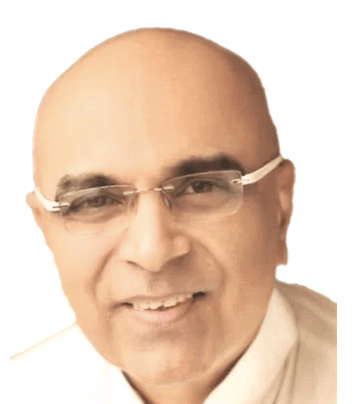By: Dr. Girish Patel
Source: The Daily Guardian https://epaper.thedailyguardian.com/view/2944/the-daily-guardian/15
Dated: September 1st, 2025

Affirmations are the key to tapping the power of the subconscious mind to solve our problems. The subconscious is not magical, nor is it a substitute for effort or strategy. But when we align our subconscious with our conscious goals, our path becomes smoother and more effective because the subconscious silently governs much of our behaviour and emotions.
All of us think about something or the other throughout the day, but those random thoughts do not carry much power. Affirmations are powerful thoughts created with a specific objective, and they produce results. Suppose you want to be cured of a disease, or address its root cause, which may be in the mind. To achieve the goal, the affirmation you choose would first need to make an impact on your subconscious mind and convince you that you will be cured. The affirmation can either address the symptoms or remove the root cause of the disease.
When do affirmations have an effect on the subconscious mind? When there is an emotion attached to them. Affirmations work when we create and repeat them in a deeply relaxed state of mind, which can be achieved through meditation or other techniques.
The subconscious does not need logic. For example, someone might think, how can I cure my ulcer by just repeating a thought? That is a logical question. But if the subconscious mind is convinced that this can be done, then it will happen. Affirmations are most effective in the third person. Suppose I am very fearful and want to overcome the weakness, it would be best if I declare, “Girish, you are brave”. It is as if someone is asserting the fact that I am brave. That is more effective, and convincing, than merely telling myself, “I am brave”, which can feel like a delusional thought.
The conscious mind, which does logical reasoning, critical thinking, and analysis, sometimes blocks our affirmations. This happens in the form of thoughts that arise in response to affirmations: “You know that is not true...”, or “You are fooling yourself”. The conscious mind acts like a gatekeeper that does not allow the affirmation into the subconscious. We cannot force an affirmation into the subconscious; we have to first convince the logical mind that the affirmation is true. For example, in the case of trying to heal a physical ailment, we can tell ourselves that the mind has the power to heal the body – countless people have done it and it is a scientifically accepted fact. A point to note here is that the mind does not “cure” the body by sheer willpower; it influences healing by shaping the immune function, hormone levels, pain perception, and stress response. The patient’s belief that a treatment will work, has been found to trigger real physiological changes, even if the treatment is inert.
In some cases, the subconscious itself might reject or resist our affirmations. This happens when we are trying to change a deeply held belief. A large number of people carry the negative belief that “I am not good enough”. This is often the result of repeated criticism, neglect, or emotional invalidation during the formative years. Later in life, such people may excel academically, succeed in their profession or business, and become very rich, but they still remain unhappy because a voice deep within them keeps saying that they are not good enough. This belief can be gradually removed by methods such as questioning the logic behind it, looking at the positive aspects of one’s life and introducing a new belief based on them, and acting in ways that boost self-esteem. The brain constructs our reality on the basis of sensory inputs filtered through belief systems, past experiences, and emotions. We do not just see “what’s there”; we see what our brain expects or is primed to see. This is how our inner world influences our outer experience. When we consciously change the inner filters that shape our reality, and choose to focus on the positive, then our life begins to take a positive turn.

Dr. Girish Patel is a well-known psychiatrist
based in Mumbai, and a student of Rajyoga with the Brahma Kumaris.



